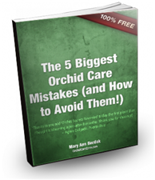 Orchids are one of the oldest and largest species of plants on earth. It is precisely because of this that sometimes they are being taken for granted. Around the world there are now certain species that are close to extinction due to man-made reasons.
Orchids are one of the oldest and largest species of plants on earth. It is precisely because of this that sometimes they are being taken for granted. Around the world there are now certain species that are close to extinction due to man-made reasons.
A recent incident in Nepal proves again that humans are nature’s number one enemy when it comes to losing its natural beauty and treasures. The report states that illegal traders were caught by a team of foresters and police with 3,943 kilograms of orchids in their possession. In fact, the government of Nepal had announced a ban for orchid trade. They suspect these orchids are being brought to India to be used as medicinal herbs and such.
Orchids in Nepal were declared endangered over ten years ago, and they have just recently been listed as illegal for trading. Poor people in Nepal harvest these plants without knowing their importance and then sell them for small amounts of money. These orchids are then used as weeds, compost, beddings and cattle feed. And the illegal trade is very difficult to stop because the livelihood of the people depends on it.
Some harvested plants are then bundled in tracks and carried off to India where they will be used for medicinal purposes. To these people who do the harvesting and trade, these plants are just a source of income.
There are over 302 types of orchid found in Nepal and because of these illegal trades, the number is dwindling down. Unless harsh punishment and strict implementation of the law is enforced, their numbers will continue to fall until they become extinct.
Although there are a lot of species of orchids available today, there are still certain species of orchids that are needed to be protected. This is not only for culture’s sake but also for the sake of the environment. Think about how it can affect the world. Sure they are “just orchids” to many people, but to the entirety of the planet, they are a part of something bigger.
What do you think about the illegal trade of orchids? Let us know and leave your comments.
Another species that is endangered in the United States is the Calypso Orchid. We all need to protect this one too.




Hi Mary,
Good and awareness info. Indeed it is true, I have worked in N.E. India for about 28 years, seen orchids plundered and taken away, sold like vegetables without realizing precious gene pool is put on the threshold of endanger. When I went in 1983 and worked in remote areas the orchids were plenty, people use to bring few plants in flower for selling, now it is so difficult to sight, I have travelled for 6 hours to take pictures of vanda coerulea in it’s natural habitat, mans greed and poor economic conditions form high stakes and makes it difficult to protect the species.
Sastry
It’s just so sad. Thank you so much for your input on this matter. I know it can’t be easy to watch this happen. Are there any programs in place to help the situation? Or is it just plunder away? – Mary Ann
There are many endangered orchids native to Nebraska such as Cypripedium parviflorum, Cypripedium candidum, and the western fringed prairie orchid. It is so sad. My grandmother can remeber when a certain field used to be vigin prairie and the would often see Cypripedium candidum. Now it is just a corn field. I’m going to get some Cyp. parviflorum and put them in my landscape.
Yes – it is quite sad. I wish you the best with procuring these orchids! – Mary Ann
The trade in jungle raised plants is internationally illegal but the problem is that customs folks cannot distinquish between legally grown plants from seed and cuttings or clones from those that were stolen from the jungles because they are not botanist or geneticists and to them one plant is just another plant–and you know this when you hear about somone going to prison for importing or selling a legally grown nursery grown plant say of Paphiopedilum that is also a hybrid.
I propose that) the hybridizing folks cease and desist their frivolous ways and stick to raising species from seed to keep orchids from going extinct in the wild to provide legally gotten and grown plants and that the world orchid community take up growing species from seed or clones and take what they will but at least 20-50 % of these plants need to be sent back to the wilds to live –this has worked for buffalo (American bison), various birds et al and it will work for plants also–especially orchids–each seen pod has the potential of producing 1-billion plants and with human help there will be enough for every man woman and child to have an orchid plant with pleny left over to go back to the wilds. We need to give back to nature that which the greedy folks of the past have taken and caused to become either extinct in the wilde or nearly so. The hybrid folks have confused the genera and species of orchids so that at times it is difficult to distinquish between what nature gave us and the truer beauty thereof from the sophisticated so-called improvements the hybridizers make but as in dogs these are not improvements but result in detrimental conditions for many orchids–more susceptible to disease et al
This is a very thoughtful point you make. I really appreciate you participating in the conversation. We certainly do tend to drain nature, which is truly a shame. Hopefully there will be some strides to fix these issues. – Mary Ann
Hi Mary….tell me what orchids do you now are in danger, so maybe if I can i will search for them in my Country and try to get some and reproduce if i can !!!!
best wishes
Here’s a link with some more information about endangered orchid species. – Mary Ann
I have been working on China’s problem collecting and sell of wild orchids. I found that many Chinese dealers that receive wild collected orchids are now worried that within five years no orchids will be left. So the rush to collect the most has accelerated this problem now.
Hi – Thank you for your input and the work you are doing. What does it look like now? Is there progress being made? What is your assessment at this point? – Mary Ann